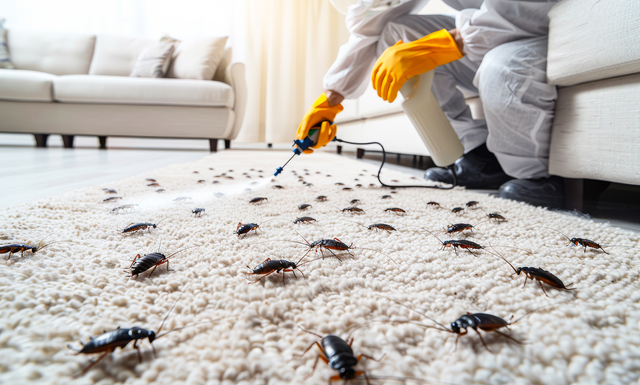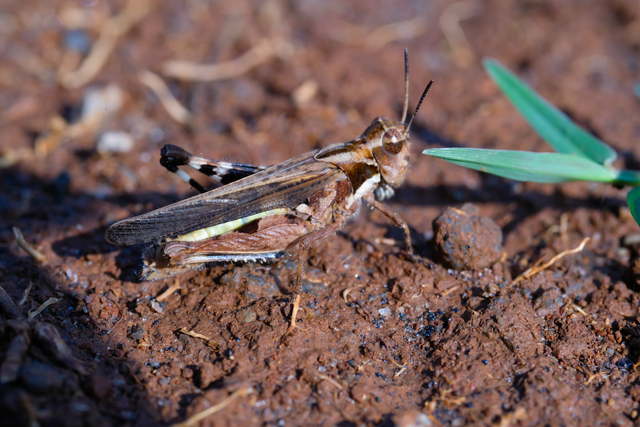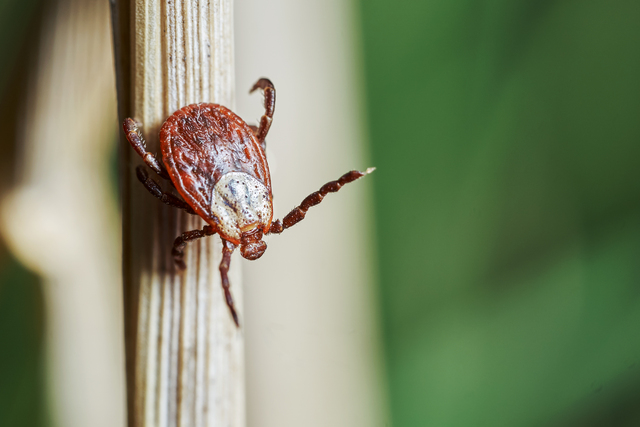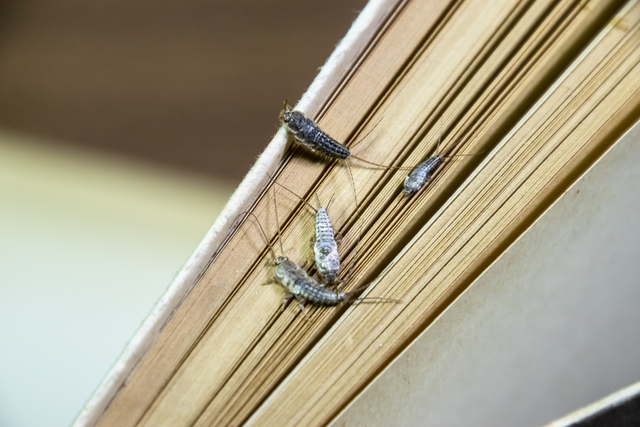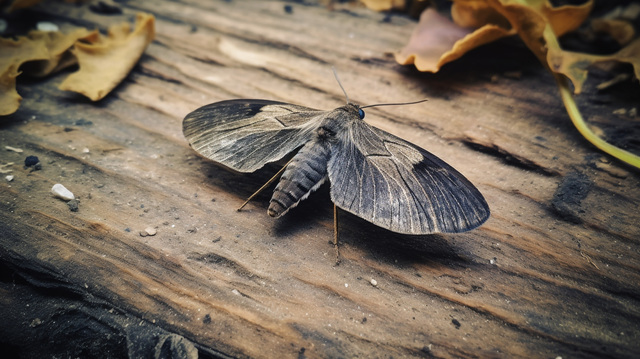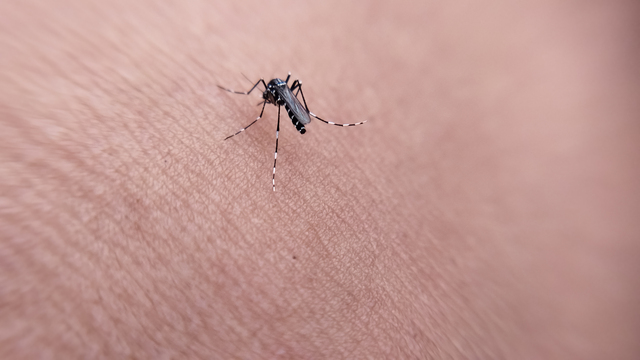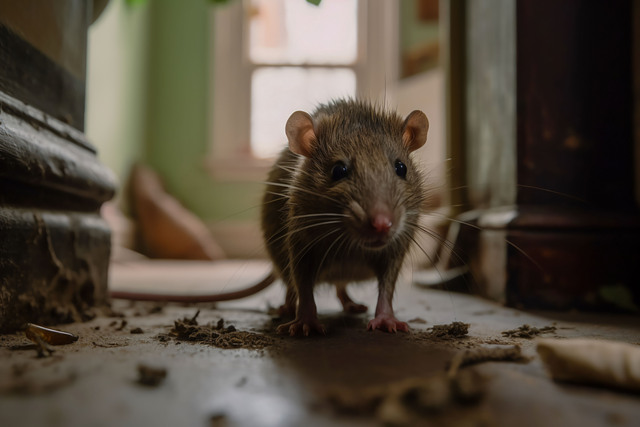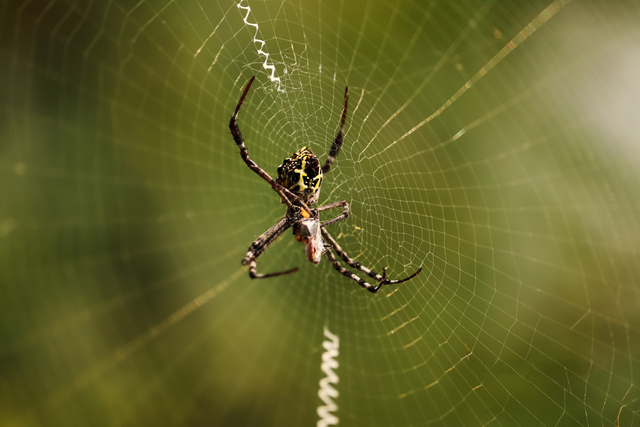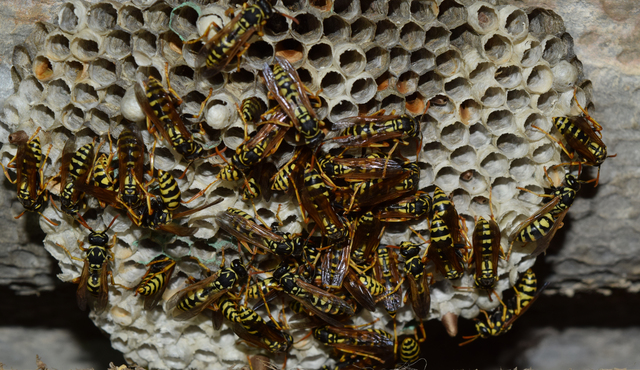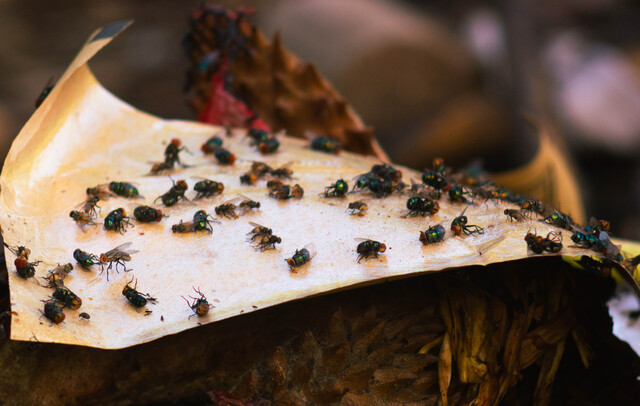Dealing with household pests is something no one looks forward to. Whether it’s rodents like mice or rats, or common bugs like roaches, or bed bugs, they all need to be addressed promptly and effectively. Finding the right pest control company in your area can seem overwhelming, but once you identify a pest issue, you’ll want it resolved as quickly as possible. Here are the hints to consider if you need to hire a pest control professional: DIY vs. Hiring a Local Pest Control Professional Hiring a local pest control professional can be costly, so it’s understandable to consider handling it yourself. While DIY pest control might seem like a good alternative (who hasn’t set out roach traps before?), it may not be as straightforward as it appears. It’s important to note that if you spot bed bugs, you should always call a professional, even if you think they’re confined to one room. Size and Severity of Infestation First, assess the situation you’re dealing with. There’s a significant difference between a few bugs and a full-blown infestation. Or one rodent versus an entire family. Are they confined to one room, or are they spread throughout your home? It’s crucial to recognize when you’re outnumbered or potentially outnumbered. Using a bug bomb for a few roaches in the bathroom might work, but if you see them in the kitchen too, it’s time to call a pest control company as they may have laid eggs somewhere. Even if you prefer DIY, it’s wise to have a professional inspect the situation to determine the extent of the problem. Pests can hide in areas of your house you wouldn’t think to check. Many pest control professionals offer free or low-cost consultations and can provide an estimate. Cost Opting for professional pest control will be more expensive initially. However, if you don’t get DIY right the first time, you could end up spending much more in the long run trying to find the right solution. That’s why it’s essential to understand the type of infestation you’re dealing with. If you need to buy supplies beyond what you already have, costs can add up. Hiring a professional might cost a few hundred dollars, but if you need to use chemicals in your home, you might spend the same on supplies and labour. Do you really want to be elbow-deep in creepy crawlers or deal with rodent carcasses? How to cooperate with the pest control professionals: If the service technician requests specific actions before, during, or after the pesticide application, please cooperate and follow their instructions. For example: • Remove personal items from the floor, empty kitchen cabinets, and remove pets before the technician arrives. • Keep children and pets out of treated areas until the pesticide spray has dried. • Either remove aquariums from the treatment site or cover them with heavy plastic and turn off the air pump. • Remove all other household pets from the treatment area. • If the technician suggests non-chemical pest control methods in addition to pesticides, be sure to follow those instructions. Good cooperation between you and the pest control company will help eliminate pests and reduce pesticide use. Pest control companies play a crucial role in ensuring the safety and well-being of your home and property. Pests, though often merely annoying, can spread diseases, contaminate or consume food supplies, and cause structural damage. The most effective way to prevent these issues is by hiring a professional pest control company to identify and treat infestations. Armor Pest Control aims for providing the best pest control service not only in Moorabbin but in all of Melbourne to protect people, animals, and property from pests, which carry diseases, cause structural damage, and spread filth. Feel free to give Armor Pest Control a call to get free quote and find out more.
How to Preventing Cricket Infestations
We often associate crickets with the loud noises they produce by rubbing their front wings together. While an occasional chirp can be pleasant, this noise can become extremely annoying and even disrupt sleep, especially as their population increases. Crickets, Property Damage, and Disease While some pests, like spiders or wasps, are considered dangerous and frightening, most people don’t worry about crickets. However, crickets can be both destructive and hazardous. Crickets will chew on various household items, including furniture, wool, silk, and even food. Although the initial damage may be minor, they can eventually destroy keepsakes, and any food they come into contact with must be discarded. This leads to the most significant concern with crickets. These pests carry diseases, and while the pathogens they spread aren’t fatal, they can cause painful sores. Additionally, they can bite, which, although uncommon, can be unsettling. Preventing Cricket Infestations Crickets are primarily drawn to areas with excess clutter and outdoor lighting. They thrive in humid environments with plenty of food. To reduce the risk of a cricket infestation, consider these simple steps: • Direct outdoor lighting away from entrances and walls, and use yellow-toned lights. • Eliminate clutter both inside and outside your property. • Reduce humidity by repairing leaky plumbing and using dehumidifiers. • Regularly clear leaf piles, damaged wood, grass clippings, and other organic debris from your yard. • Seal any holes in the walls and foundation of your building to prevent crickets from entering. These measures can help you avoid potential cricket problems. However, if crickets are already causing issues, it might be time to call in the professionals. Expert Cricket Control The most effective way to prevent and eliminate crickets from your property is with the help of ARMOR PEST CONTROL. We offer reliable pest eradication plans for both residential and commercial properties, ensuring crickets and other pests stay away. Getting started is easy with our free quotes. Simply send us a message online or give us a call to learn more.
Top Four Ways to Eliminate and Prevent Ticks
Ticks in your home can spread diseases as they feed on their hosts’ blood for several days. When a tick consumes the blood of an animal infected with a bloodborne disease, it also ingests the pathogens. During feeding, the tick’s saliva may enter the host’s skin in small amounts, causing irritation. If the tick carries a pathogen, it can transfer the organism from one host to another through this process. After feeding, most ticks will detach and prepare for the next stage of their life cycle. Once the tick has fed on its new host a few times, it can transmit any diseases it has acquired. Top Four Ways to Eliminate and Prevent Ticks Here are some effective strategies to keep ticks out of your yard: 1. Maintain Your Yard: Avoid letting your yard become overgrown with brush, leaves, and grass. Ticks, along with kids and pets, tend to hide in these areas. Regularly mow your lawn to prevent ticks from finding shady hiding spots. 2. Strategic Placement: Keep compost piles away from playgrounds, decks, and other family areas. Position swing sets, sandboxes, and similar spaces away from trees. Using wide chips or gravel can help keep ticks out of your grass. 3. Inspect Common Hiding Spots: Ticks often take shelter in the crevices of fences, retaining walls, and the outer walls of outbuildings like sheds. Regularly check these areas for ticks. 4. Protect Your Pets: Pets can contract tick-borne infections and bring ticks into your home. Consult your vet for recommendations on year-round tick treatments. If you find a tick on your property, avoid crushing it (which could spread germs). Instead, flush it or bag it for disposal. Keep Ticks Out of Your Yard! A tick infestation in your house is unpleasant and poses risks to your family and pets. To ensure ticks don’t linger in your yard, consider hiring Armor Pest Control for a tick extermination.
How to Eliminate Silverfish and Prevent Their Return
When you delve into the world of pests, you might find yourself both fascinated and disturbed by the silver-scaled creatures known as silverfish. These intriguing insects typically measure between 0.5 to 0.75 inches in length, proving that ‘size isn’t everything.’ Despite their small size, silverfish can cause significant problems in your home. As their name suggests, silverfish have a silvery-gray colour and move in a fish-like manner, making them unique among household pests. With their distinctive teardrop shape and three prominent bristle-like tails, spotting silverfish in your house should prompt immediate action. It’s crucial to understand that these tiny creatures are more than just a visual nuisance – they can cause considerable damage. Silverfish Can Damage Your Belongings You might wonder how something so small can cause so much damage. Silverfish can affect a wide range of household items. They thrive on starch and sugar, putting items like books, wallpaper, clothing, and even pantry goods at risk. Here’s a brief overview: • Books and paper: Silverfish consume cellulose found in paper, damaging your valuable literature. • Clothes: Natural fibers such as cotton, linen, and silk are a feast for these pests. • Wallpapers: Silverfish can ruin your beautiful wall decor by feeding on adhesive glue. • Photos: Silverfish often target old photographs stored in humid environments due to the gelatin layer that covers the image, which contains animal protein, a food source for silverfish. • Insulation materials: Your attic or wall insulation isn’t safe either. Silverfish can chew through these materials, reducing the efficiency of your home’s insulation. • Pantry Items: Silverfish can infiltrate your unsealed food containers, leading to contamination. Due to their small size and nocturnal habits, you might not notice the damage until it becomes significant. How and Why Silverfish Invade Homes Silverfish thrive in moist environments. They lay eggs in damp, humid areas commonly found in homes, such as kitchens, bathrooms, basements, and attics. These spots provide ideal conditions for young silverfish to grow. Silverfish can enter your home through the tiniest openings, seeking food and shelter. Their flat bodies allow them to squeeze through small cracks and crevices in your home’s structure. How to Eliminate Silverfish and Prevent Their Return So, what’s the best way to get rid of silverfish? At ARMOR PEST CONTROL, we recommend proactive measures to keep these pests at bay. Here are our top tips: • Control humidity: Use dehumidifiers in damp areas of your home. • Seal cracks and crevices: Regularly inspect your home’s exterior and interior for potential entry points. • Store food properly: Use airtight containers to prevent silverfish from accessing food. However, once silverfish have established themselves in your home, they can be tough to eradicate. That’s where ARMOR PEST CONTROL comes in. We offer targeted treatment plans tailored to your specific pest problems and help you regain peace of mind in your home. Contact ARMOR PEST CONTROL today.
How Do Moths Get In Your House?
Moths are frequently found infesting homes. Despite their beautiful and varied designs, they can cause significant damage to our belongings. While their presence might add color to our homes, it often comes at the expense of our clothes and food. Moths As Pests Although moths do not transmit diseases like some other pests, they are highly destructive as they consume various items within homes. The extent of the damage depends on the type of moth. The larvae stage is particularly harmful. If you have pantry moths, their larvae will feed on nearby food. If you have clothes moths, they will consume your clothing. Feeding provides the nutrients they need to mature into adults. How Do Moths Get In Your House? You might wonder how moths enter your home. There are two main ways: they either fly in or are brought in unknowingly. Pantry moths, also known as Indian meal moths, are attracted to light and fly in at night when lights are on. Once inside, they head straight to the pantry to find dry stored foods. Clothes moths, on the other hand, prefer darkness and are more likely to enter your home at night when the lights are off. Moths can also be brought in through items you bring into the house. Old clothes carrying eggs or larvae can introduce clothes moths, while pantry moths can be brought in through infested dry stored foods. Moth Control 1. Install Screens: Place screens on your windows, doors, and vents to prevent moths and other insects from entering your home. 2. Clean Cabinets: Remove clothes from your cabinet and wipe down the surfaces with a cloth soaked in soapy water to kill any larvae. 3. Seal Cracks: Seal any cracks and crevices that are large enough for moths to enter. 4. Store Food Properly: Keep your food in sealed containers to prevent moths from accessing it. 5. Dispose of Infested Food: Throw away any food that has been infested. If you already have a moth infestation, don’t worry. Simply call the professional pest control company in Melbourne: Armor Pest Control.
Reclaiming your yard from mosquitoes involves implementing effective mosquito control strategies tailored to your property’s specific needs
Reclaiming your yard from mosquitoes involves implementing effective mosquito control strategies tailored to your property’s specific needs. By combining preventative measures with targeted treatments, you can significantly reduce the mosquito population in your yard and enjoy outdoor activities without the constant nuisance of these buzzing pests. In this article, we’ll explore some effective methods for mosquito control in your house. Identifying a Mosquito Problem If you’re trying to eliminate mosquitoes in your home, the first step is to determine whether you have a mosquito problem. While mosquitoes are common during the warmer months, not all flying insects that resemble mosquitoes are actually mosquitoes. Many insects, such as midges and crane flies, look similar to mosquitoes. To accurately identify mosquitoes in your house, look for their distinctive long, thin legs, narrow wings, and elongated proboscis. Mosquitoes are attracted to standing water and will lay their eggs in it. If you notice a lot of flying insects around stagnant water sources, you may have a mosquito problem. Why Water Features Attract Breeding Mosquitoes Water features like ponds, fountains, and bird baths can enhance the beauty of your yard, but they also attract breeding mosquitoes. Mosquitoes lay their eggs in standing water, making these features ideal breeding grounds. The warm, stagnant water provides a perfect environment for mosquito larvae to develop into adults. To prevent mosquito breeding in water features, it’s crucial to treat standing water regularly. This can be achieved by adding mosquito dunks or introducing mosquito larvae-eating fish, such as gambusia, to your water feature. Regular cleaning and maintenance of your water feature can also help prevent mosquito breeding. Tips To Stop Mosquitoes From Breeding In Water Features To prevent mosquitoes from breeding in water features, consider the following tips: • Regularly clean and maintain your water feature to prevent standing water and debris buildup. • Use a pump or filter to keep the water moving, which will discourage mosquito breeding. • Add mosquito dunks or mosquito larvae-eating fish, such as gambusia, to your water feature to kill mosquito larvae. • Consider using essential oils like citronella, lavender, and peppermint to repel mosquitoes. • Use a mosquito net or cover to prevent mosquitoes from accessing the water surface. While these tips can help reduce mosquito breeding in water features, remember that prevention is key. Regular maintenance and treatment are essential to keep mosquitoes at bay and protect your family from the diseases they may carry. How Can I Effectively Keep Mosquitoes Out of My Yard? To keep mosquitoes out of your yard, it’s essential to have a comprehensive mosquito control plan that includes both prevention and treatment. For the most effective and long-lasting results, consider hiring professional pest control services like ARMOR PEST CONTROL. As a reputable pest control company, we can assess your property, identify potential breeding sites, and create a customized treatment plan to eliminate mosquitoes from your yard.
The Ultimate Rodent Control Solution for Melbourne Properties
Rodents might be common in Melbourne, but they certainly shouldn’t belong in your home. If you suspect that you’re sharing your living space with these pests, you need effective rodent control to address the issue. Learn how to identify, prevent, and eliminate a rodent infestation in your Melbourne home below. Signs of Infestation: How to Identify Rodent Activity Identifying rodents in your Melbourne home is often easier than detecting many other types of pest problems. While rodents may not spend much time out in the open, they leave behind various signs of their presence. Recognizing these signs early can help you address a rodent infestation promptly. Here are some common indicators of rodent activity: • Noises: Listen for scratching, scuffling, or squeaking sounds in walls, ceilings, or other areas of your house. • Sightings: Spotting rodents in your home, often along the edges of rooms as they move around. • Droppings: Finding rodent droppings in cabinets or on countertops. • Gnaw Marks: Noticing gnaw marks or jagged holes in food containers. • Grease Marks: Seeing greasy rub marks along your baseboards. • Nests: Discovering nests or nesting materials under appliances or in other hidden areas. If you notice any of these signs, it’s a strong indication that rodents have invaded your home. Diseases Spread by Rodents Rodents in Melbourne are not just a nuisance; they pose serious health risks and can cause significant property damage. These pests are known to spread a variety of diseases, including: • Leptospirosis • Salmonellosis • Tularemia • Rat-bite fever • Trichinosis • And more Rodents primarily transmit pathogens through their contaminated droppings. However, you can also contract diseases from direct contact with rodents, such as being bitten or scratched. Naturally Effective Ways to Prevent Rodents Preventing a rodent infestation is the best way to ensure your Melbourne home remains rodent-free. Here are several natural methods to effectively deter rodents from your property: • Keep your grass trimmed, bushes and shrubs well-groomed, and tree branches pruned. • Remove debris from your yard, such as leaf litter, fallen branches, toys, and other items that don’t belong. • Clean out your gutters regularly. • Ensure water drains away from your house and that moisture isn’t an issue. • Remove food sources from the exterior of your property, such as pet food and birdseed. • Seal all entry points into your house. • Keep your kitchen tidy. • Store all food in airtight containers. • Take out the trash regularly. • Remove clutter from your house. By implementing these preventative measures, you can significantly reduce the likelihood of a rodent infestation in your home. The Ultimate Rodent Control Solution for Melbourne Properties If you discover rodents in your home, it’s crucial to act quickly. Rodents reproduce rapidly, and delaying action will only result in a larger, more challenging infestation. To effectively eliminate rodents from your house, you need the professional expertise of Armor Pest Control. While DIY rodent control methods might catch a few rodents, they rarely solve the problem entirely. With Armor Pest Control, you can be confident that every rodent will be removed from your home. Armor Pest Control offers comprehensive and effective rodent control services in Melbourne. Our services include ground-level exclusion work to prevent future infestations. Contact us today to resolve your rodent problem for good.
The Best Spider Control Method for Melbourne Homes
Spiders are well-known for their silk production. They play an important role in nature as both prey and predators, but they can become unwelcome visitors in your home. While most spiders are venomous, they are generally harmless to humans. However, some can be dangerous, and even the harmless ones can fill your home with unsightly webs and nests. The experts at Armor Pest Control can help you keep spiders at bay with effective spider control in Melbourne. We will review the local spider species and explain why they could indicate a bigger problem. We will also share tips for preventing spiders and achieving total spider control. Melbourne is home to a variety of spiders due to its diverse ecosystem. Orb-weavers are relatively common, and you might see their intricate circular webs in your yard and wooded areas. Wolf spiders are also prevalent; they are agile and known for their hunting skills rather than web-building. Spiders prey on insects and are essential outdoors. Unfortunately, their presence in your home could signal a bigger problem. An increase in spider activity in your home could indicate an underlying issue. Spiders are predators, and finding many of them on your property could mean you also have an insect infestation. Addressing the root cause of your spider problem is crucial. Common household pests like flies, ants, or mosquitoes can cause everything from property damage to health problems. Read on for five easy spider prevention tips to control spiders around the house. Five Easy Tips to Keep Spiders Away from Your Home Making your home spider-free can make it more comfortable and easier to maintain. Here are five simple tips you can start using today: Clean Regularly: Dust and vacuum frequently, especially in corners and under furniture, to find and remove cobwebs. Decluttering is essential to reduce hiding spots. Seal Entry Points: Close off crevices from the foundation to the attic to keep spiders out. Structural vulnerabilities are common entry points for pests. Adjust Outdoor Lighting: Yellow or LED lights are less attractive to insects that spiders prey on. Eliminating prey can discourage these arachnids from setting up webs around your property. Tidy Up Your Yard: Remove piles of leaves or wood near your home, as spiders often use them as hiding spots. Consider Using Natural Repellents: Deterrents like vinegar or peppermint essential oil can help keep spiders at bay as they are sensitive to strong scents. While prevention can help, it may not be enough to get rid of spiders entirely. If you’redealing with a full-blown infestation, it’s time to call the professionals. The Best Spider Control Method for Melbourne Homes No matter the season, keeping spiders away from your Melbourne home is possible. At Armor Pest Control, our experienced technicians can identify spider species and eliminate them using targeted strategies and preventive measures. We customize our solutions to your needs, treating every spider hotspot and underlying pest issues. We also offer regular service plans that cover spiders and other pests. Call us today to determine the best approach for your situation. Armor Pest Control is committed to the highest service standards, offering spider control near you that delivers results. Get started today for a free quote.
Professional Wasp Extermination: Quick and Effective Solutions
Dealing with a wasp issue can be intimidating, especially for residents of Melbourne who frequently encounter these insects. This article provides effective and safe methods for wasp control in Melbourne. You’ll learn how to protect your property from the frequent dangers posed by wasps, from preventive measures to professional assistance. Our expert tips and recommendations will equip you with the knowledge and tools necessary to proactively address wasp infestations, safeguarding your loved ones and property from these stinging insects. Distinctive Wasp Characteristics: How to Identify Wasps Identifying wasps is the first step in effective pest management and ensuring personal safety. Wasps have unique traits that distinguish them from other flying insects. Key features include their slender bodies with a distinct waist, vibrant colours ranging from black and yellow to metallic blues, and two pairs of membranous wings. Additionally, their nests often have a papery texture and hang from eaves or tree branches. Understanding these distinctive characteristics can help you differentiate between wasp species and assess potential threats. Proper identification allows you to take appropriate steps to coexist peacefully with non-aggressive wasps while addressing harmful infestations. Wasp Infestation Risks: Don’t Ignore the Problem Various types of wasps can pose significant risks to both property and people. Ignoring a wasp infestation can lead to severe consequences. Aggressive species like yellow jackets and hornets can inflict painful stings, triggering allergic reactions in some individuals. Additionally, wasp nests near homes or businesses increase the likelihood of encounters, putting you in harm’s way. Attempting DIY wasp removal can also escalate the danger, especially if you lack proper knowledge. Therefore, professional wasp removal services are crucial to ensure the safe and effective elimination of nests, mitigating the risks associated with infestations. Strategies for Wasp Prevention: Effective Tips and Tricks Wasp prevention tips can help maintain a safe and comfortable home and outdoor experience. By adopting proactive measures, you can reduce the likelihood of wasp infestations around your property and enjoy your yard without fear. Here are some practical tips and tricks to keep them away: • Seal Openings: Inspect your property for gaps, cracks, and openings in doors, windows, and walls. Use caulk or weatherstripping to block wasps out. • Keep Food Covered: Wasps are attracted to food sources, so always cover trash cans tightly and avoid leaving food or sugary drinks outside. • Trim Landscaping: Regularly trim bushes, hedges, and trees near your home to minimize potential nesting sites for wasps. • Install Traps: Use wasp traps available at stores to capture and control them. • Avoid Strong Scents: Wasps gravitate to strong smells, so try to limit the use of scented products when spending time outdoors. • Pool Precautions: Keep pools covered when not in use, as wasps may use the water as a drinking source. Creating a less attractive environment for wasps is key to these practical tips, which help reduce the chances of encountering nests on your property. Professional Wasp Extermination: Quick and Effective Solutions If your home is facing a wasp infestation, hiring a professional exterminator like Armor Pest Control is the best decision. DIY methods can be dangerous, exposing you to stings and incomplete removal. Our skilled exterminators, equipped with specialized knowledge and tools, can quickly locate nests, evaluate the infestation, and apply precise treatments to completely eradicate wasps. Ensure the safety of your family, home, or business with the expertise of Armor Pest Control, guaranteeing a secure and wasp-free environment without compromise.
Effective Fly Control for Your Home
Flies are some of the most annoying pests to have in your home. While a single fly can usually be dealt with using a rolled-up newspaper or fly swatter, a large infestation can be much harder to manage. If you’re dealing with a fly problem, this article will guide you on how to effectively combat them. We’ll begin by identifying the most common types of flies that invade homes, their impact on food safety, and how to keep your kitchen safe. We’ll also share tips on preventing these pests from entering your house. Keep reading to learn how to achieve successful fly control in Melbourne with the help of Armor Pest Control. A Guide to Fly Identification: Types and Behaviors Identifying the species infesting your home is the first step in controlling these pests. Here are descriptions of the most common types of flies and their behaviors: • Drain flies: These gray flies are about 1/5 of an inch long, have a fuzzy, moth-like appearance, develop in standing water, and often live inside drains. • Fruit flies: With a tan thorax and black or gray abdomens, these flies are around 1/8 of an inch long. They feed on overripe or rotting food and thrive in dark, damp environments. • House flies: These dark gray flies range from 1/8 to 1/4 of an inch long, are slightly hairy, and feed on pet waste, animal carcasses, food, and garbage. Armor Pest Control is here to help you eliminate flies in and around your home. Contact us today to learn more about our fly control services or request a free quote. The Impact of Flies on Food Safety: Keeping Your Kitchen Safe Flies pick up germs on their bodies and mouths when they land and feed on pet faces, garbage, and waste. When flies are in your kitchen, they can contaminate your food and cooking surfaces with bacteria and disease-causing pathogens. These pests can spread more than 100 pathogens, including salmonellosis, tuberculosis, and typhoid. Maintaining Cleanliness to Keep Flies Away Keeping your kitchen clean and sanitary can help prevent flies and protect your family from the diseases they carry. Make sure to regularly clean countertops, avoid leaving dirty dishes in the sink or food out, and take out the trash frequently. For help with fly infestations, contact Armor Pest Control. Five Simple Tips to Prevent Flies from Entering Your Home To keep flies at bay, it’s important to remove attractants from your yard and seal potential entry points. Here are five easy ways to prevent flies from getting into your home and yard: 1. Ensure all windows and doors close tightly. 2. Regularly check window and door screens for any holes. 3. Eliminate any standing water around your home. 4. Promptly clean up pet waste in the yard. 5. Make sure garbage bins have tight-fitting lids. If you need help identifying how flies are getting in or what might be attracting them, the experts at Armor Pest Control are ready to assist. Contact us today to learn more about our fly control services or to request a free quote. Effective Fly Control for Your Home Controlling flies can be difficult, especially if they are breeding on your property. Flies can lay up to 500 eggs in just a few days, so a large number of flies around your home likely indicates a nearby breeding site. For assistance in eliminating flies and their breeding grounds, or to learn more about our residential pest control services in Melbourne and surrounding areas, contact Armor Pest Control today.

